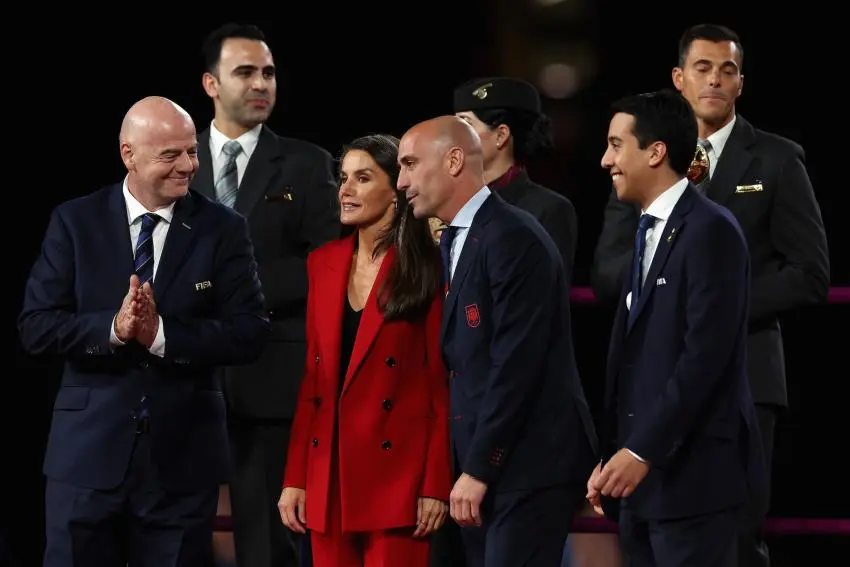In recent weeks, the world of football has been rocked by a disturbing incident that has once again shone a spotlight on the critical issue of gender-based violence and discrimination within the sport. The actions of Spanish Football Federation President Luis Rubiales, who kissed Spanish football player and 2023 World Cup champion Jenni Hermoso without her consent, have ignited outrage and called into question the integrity of those entrusted with leading football’s governing bodies. Rubiales’ subsequent refusal to step down and his attempt to deflect blame onto “false feminism” have deepened the crisis, demanding our attention and immediate action.
The Das Deutsche Institut für Demokratie und Entwicklung (DIDE) recognizes that this incident is not an isolated one but rather a stark representation of the systemic problems plaguing women’s football. Reports of sexual abuse complaints against at least twenty of FIFA’s 211 national federations are alarming and deeply concerning. While Rubiales bears personal responsibility for his actions, it is essential to emphasize that FIFA and all football associations share an institutional responsibility to combat violence and harassment against women players.
The Delayed Response: FIFA’s Institutional Failings
The delayed response by FIFA in suspending Rubiales for 90 days following the incident is indicative of an institutional failing within football organizations. During this period, the Spanish Football Federation applied undue pressure on Jenni Hermoso to support Rubiales, even resorting to threats of legal action when she bravely asserted that the kiss was not consensual. Such actions perpetuate a culture of silence and impunity that must be addressed at its core.
The Consequences of an Individual-Centric Approach
It is all too common for institutions to focus solely on the individual offender, pressuring them to resign as a superficial reputation management tactic. While holding individuals accountable is crucial, this approach fails to tackle the larger structural issues that enable such abuses to persist. It lacks preventive measures, leaves survivors without adequate support, and neglects the need for reparations.
The Global Demand for Change
Women football players worldwide have grown weary of enduring a culture of discrimination, harassment, and violence within their sport. They demand change and deserve to play in a safe workplace. They have the right to enjoy economic conditions equal to their male counterparts and to see more female representation among coaches and federation leaders. It is unjust that women players are compelled to assert their rights after every game when such rights should be inherently protected.
The Way Forward: Urgent Reforms
The Rubiales incident serves as a stark wake-up call for football leadership in Spain, Europe, and across the globe. It underscores the dire need for long-overdue reforms to protect and respect women players. These reforms must be implemented without delay and should be a central consideration for FIFA, particularly when selecting locations for key events such as the Women’s and Men’s World Cups.
Establishment of an Independent Safe Sport Entity
As a critical step forward, FIFA must expedite its efforts to safeguard women within football. This includes establishing an independent Safe Sport Entity tasked with the responsibility of reporting and investigating abuse, protecting survivors, and removing abusers from the sport at all levels. Such an entity must operate transparently, with a commitment to justice and accountability.
In Conclusion
The Das Deutsche Institut für Demokratie und Entwicklung (DIDE) urges FIFA, football associations, and leaders across the world of football to heed the call for change emanating from women players. The Rubiales incident is not an isolated case but a symptom of a broader issue that requires comprehensive and immediate action. Football should be a source of inspiration, empowerment, and unity for all, regardless of gender. It is time for football’s governing bodies to demonstrate unwavering commitment to these principles and to prioritize the safety and dignity of women players above all else. The world is watching, and the time for change is now.


